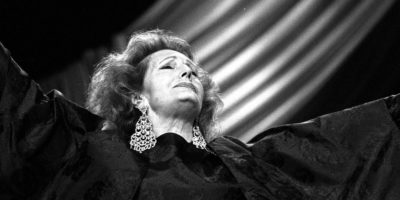
William James – Wikimedia Commons
Top 10 Facts about William James
William James was a philosopher, educator, historian and psychologist. He acquired the name, “father of American psychology”, and was one of the most influential thinkers of the 19th century.
He was at the forefront of the philosophical movement of pragmatism. The word pragmatism is derived from the Greek pragma, which means action.
The principle of pragmatism emphasizes action over doctrine, more importantly, it states that ideas are essentially instruments and plans of action.
William James is also a founder of the psychological movement of functionalism. This school of thought came to counter structuralism which originated from Germany. Functionalists stated the importance of rational thought over a trial and error philosophy. The group was concerned more with the capability of the mind than with the process of thought.
Here are 10 additional interesting facts about William James.
1. William James spent his childhood on different continents
He was born on 11 January 1842, in New York. He was the eldest son of four siblings and his father, Henry James who was a philosopher and theologian.
His father was an overly opinionated and staunch theologian who wandered from continent and city to city from New York to France to Geneva and back. All this movement affected the training of his children at school and their education at home.
2. William’s Alma Mater is Harvard University

Memorial Hall, Harvard University – by Daderot – Wikimedia Commons
When he was 19, he joined Harvard University, specifically the Lawrence Scientific School to study medicine.
At some point during his study, he took a break and accompanied his friend, a naturalist, to the Amazon for an expedition. However, during the expedition, his health condition deteriorated and he went back to Harvard.
At the end of it all, he never practiced medicine, and instead, he pursued his interests in psychology and then philosophy.
3. William James was the first educator to offer a psychology course in America
Psychology thrived in the United States in the 19th century and this was credited to his introduction of the same. He even went ahead to publish a book and It is during this time that he coined the name, the Father of American psychology.
Psychology would be described as the study of mind and behaviour, it includes understanding how feelings and thoughts contribute to a human being’s behaviour.
4. James has Authored among the first books on Psychology

A word cloud describing the concept of psychology -by Ben Taylor – Wikimedia Commons
William wrote voluminously throughout his life and has written on a vast number of topics, from metaphysics, education, religion and more intently Psychology.
His most notable books include The Principles of Psychology, a groundbreaking text in the field of psychology, Essays in Radical Empiricism, an important text in philosophy; and The Varieties of Religious Experience, an investigation of different forms of religious experience, including theories on mind-cure.
5. William James Marriage and Family

William Bryan’s wife Alice Gibbens – Wikimedia Commons
He married Alice Gibbens on July 10, 1878. Alice was from Cambridge, Massachusetts, and proved to be a supportive wife to William.
It was reported she assisted him in the publishing of his breakthrough book, Principles of Psychology. Her contribution could be attributed to her being an emotional support to him during that time.
They together had five children namely; Henry, William, Herman, Margaret and Alexander.
6. James developed the model of Freewill
As part of his development and study of psychology, he came up with the model of free will which can be defined as a two-stage model.
This model explains how people come about to make decisions and what factors come to play in the process of decision making. He describes our basic ability to choose as free will, and the two factors that contribute to the decision-making process are chance and choice.
He goes ahead to distinguish chance from choice, in that choice is an arguably determinate decision that follows causally from one’s character, values, and especially feelings and desires at the moment of decision and chance as the in-deterministic free element.
7. William was hired to be a lecturer at Harvard
In 1872, James was appointed as an instructor in physiology at Harvard College, he served in this capacity until 1876. He moved on to teach psychology which at this point proved to be his heartbeat. A few years down the line, in 1890 he published his debut book, the principles of psychology in two great volumes which were later revised to one book.
8. William James did important work on the philosophy of religion
This concept is described as is the philosophical examination of the central themes and concepts involved in religious traditions.
During his tenure as a lecturer at the University of Edinburgh, he made some discoveries on the varieties of religious experiences.
Some of the claims he makes in that regard include; religious experience should be the primary topic in the study of religion, rather than religious institutions since institutions are merely the social descendant of experiences.
Secondly, he claimed that a variety of characteristics can be seen within a single individual. There are subconscious elements that compose the scattered fragments of a personality. This is the reflection of a greater dissociation which is the separation between science and religion.
9. William James is one of the two namesakes of the James–Lange theory of emotion

An image of a manuscript – Wikimedia Commons
This is a theory on the origin of emotions and is one of the earliest theories of emotion within modern psychology. Philosopher John Dewey developed the theory and named it after the two scholars, William James and Carl Lange.
The basic premise of the theory is that physiological arousal instigates the experience of emotion. It proposes that each specific category of emotion is attached to a unique and different pattern of physiological arousal and emotional behavior in the reaction due to an exciting stimulus.
10. William James’ theory of the self
Another one of his notable psychology theories is the theory of the self. Here he divides a person’s mental picture into ‘’ME’’ and ‘’I’’.
The “Me” can be thought of as a separate object or individual a person refers to when describing their personal experiences; while the “I” is the self that knows who they are and what they have done in their life.
This theory has inspired other scholars to develop applications that feed into that narrative.
In conclusion, William James is a man who positioned himself and devoted his life to studying and contributing to the field of psychology. He has acquired a couple of notable works and theories that can be solely attributed to himself.
He passed on on 26 August 1910 aged 68 and having accomplished work that outlived and outlasted him.
Planning a trip to Paris ? Get ready !
These are Amazon’s best-selling travel products that you may need for coming to Paris.
Bookstore
- The best travel book : Rick Steves – Paris 2023 – Learn more here
- Fodor’s Paris 2024 – Learn more here
Travel Gear
- Venture Pal Lightweight Backpack – Learn more here
- Samsonite Winfield 2 28″ Luggage – Learn more here
- Swig Savvy’s Stainless Steel Insulated Water Bottle – Learn more here
Check Amazon’s best-seller list for the most popular travel accessories. We sometimes read this list just to find out what new travel products people are buying.










